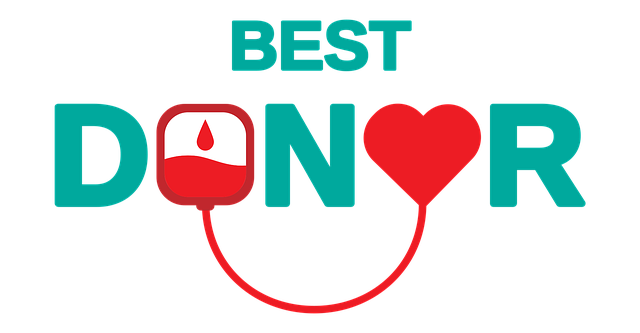Why You Should Donate Blood
Sample Persuasive Speech
Blood donation is a vital and often overlooked topic that holds the potential to save countless lives. The persuasive speech provided here is an 800-900 word example on the topic of why you should donate blood. The speech is designed to raise awareness about the importance of donating blood and to inspire action among the audience.

The article provides a brief call-out after each speech section to explain the introduction, the body, and the conclusion construction. By understanding the structure and content of this speech, users can gain valuable insights into how to craft a compelling argument and effectively convey their message. The introduction, body, and conclusion explanations aim to demystify the process of writing a persuasive speech, making it easier for users to create impactful and persuasive presentations on any topic.
We hope the call-out explanations help you to prepare your persuasive speech on a different topic or revise the sample to meet your needs in advocating for blood donation.
[INTRODUCTION] - Why You Should Donate Blood
Ladies and gentlemen, friends and colleagues, thank you for your attention today. I stand before you to discuss a topic critical to our community's health and well-being – blood donation. Every day, countless lives depend on the selfless act of donating blood. You might not realize it, but you have the power to save lives. Today, I will discuss the significance of blood donation, its impact on both the recipients and the donors, and how you can take action.
BREAK: Introduction Construction
In the introduction, I briefly touched upon the significance of blood donation and set the tone for the speech. The purpose of the introduction is to grab the audience's attention and provide a preview of the key points I will discuss throughout the speech.
[BODY: Part 1] - The Need for Blood Donation
Every year, millions worldwide require blood transfusions. Accident victims, cancer patients, and those undergoing surgery are just a few examples of individuals who might desperately need blood. In the United States alone, someone needs blood every two seconds. Unfortunately, only about 3% of eligible donors donate blood, so the supply often falls short of the demand. This shortage can result in delayed medical treatments and, in some cases, even death.
By donating blood, you can help bridge this gap and ensure that blood is available when needed most. One donation can save up to three lives, which only takes about an hour. Think about the difference you can make by simply rolling up your sleeve and donating blood.
BREAK: Body Part 1 Construction
In the first part of the body, I discussed the need for blood donation by highlighting the gap between demand and supply. By providing statistics and explaining the potential consequences of this shortage, I aim to emphasize the urgency and importance of blood donation.
[BODY: Part 2] - The Benefits of Blood Donation
Blood donation saves lives and has numerous benefits for the donors themselves. Regular blood donation can help improve overall cardiovascular health, reducing the risk of heart attacks, strokes, and high blood pressure. Donating blood also allows your body to produce new red blood cells, which can contribute to a healthier circulatory system.
Moreover, donating blood provides an opportunity to receive a mini health check. Before donating blood, you will undergo a short health screening, which includes checking your blood pressure, pulse, and hemoglobin levels. This process can help identify potential health issues you might not have been aware of.
BREAK: Body Part 2 Construction
In the second part of the body, I have focused on the benefits of blood donation for donors. By outlining the positive aspects, I aim to encourage more people to consider donating blood and alleviate any concerns about the process.
[BODY: Part 3] - Taking Action
Now that you understand the importance of blood donation and its benefits, you might wonder how to take action. Donating blood is a simple process that typically takes less than an hour. Find a local blood drive or blood donation center near you to get started. You can search online, call your local hospital, or use the American Red Cross's online resources. Before donating, ensure you meet the eligibility criteria, such as being in good health, weighing at least 110 pounds, and being at least 17 years old (or 16 with parental consent).
Remember, there is no substitute for human blood; your donation can significantly impact someone's life.
BREAK: Body Part 3 Construction
In the third part of the body, I have provided actionable steps for the audience to take if they donate blood. By offering specific information on how to donate and outlining the eligibility criteria, I aim to make the process more approachable and encourage the audience to take action.
[CONCLUSION] - Why You Should Donate Blood
In conclusion, blood donation is a selfless act that can save lives and improve the health of both recipients and donors. By understanding the need for blood donations, recognizing the benefits, and taking action to donate, you can make a significant difference in the lives of those in need. Don't wait for a tragedy to strike close to home before realizing the importance of this life-saving gift. Take the first step today and become a blood donor. Together, we can ensure that the gift of life is always available for those who need it most.
BREAK: Conclusion Construction
In the conclusion, I summarized the speech's main points and provided a final call to action. By reinforcing the importance of blood donation and encouraging the audience to take action, I aim to leave a lasting impact and inspire positive change within the community.
The speech sample above about why you should donate blood has provided a persuasive advocacy speech on the importance of blood donation, accompanied by explanations of the speech's construction. By highlighting the urgent need for blood donations and the benefits for both recipients and donors and offering actionable steps, the speech aims to inspire the audience to participate in this life-saving act.
The explanations of the introduction, body, and conclusion sections offer valuable insights into the structure of a persuasive speech, equipping users with the tools to craft impactful presentations on any topic. The combined knowledge of the speech's content and construction can empower users to become effective advocates for blood donation and inspire positive change in their communities.
If you need more facts to support a speech about why you should donate blood, consider the following facts.
- Donating blood can help people with many health conditions, such as those who have internal or external bleeding due to an injury, have sickle cell disease or another illness that affects the blood, are undergoing cancer treatment, are undergoing surgery, such as cardiovascular or orthopedic surgery, have an inherited blood disorder, are undergoing a transplant or need treatments involving plasma or other blood products. https://www.medicalnewstoday.com/articles/319366
- Donating blood is a generous thing to do and it helps people in need and in your community. When you give, others live. Donors, especially those who donate regularly, keep our nation’s blood supply stable. https://www.hhs.gov/givingequalsliving/giveblood/why-give
- Your blood donations are used for patients in need of surgery, cancer treatment and transfusions for blood loss from traumatic injuries. https://www.redcrossblood.org/local-homepage/news/article/blood-donation-importance.html
- According to the Mayo Clinic, after donating blood, it is important to drink extra fluids and avoid strenuous physical activity or heavy lifting for about five hours. If you feel lightheaded, lie down with your feet up until the feeling passes.



